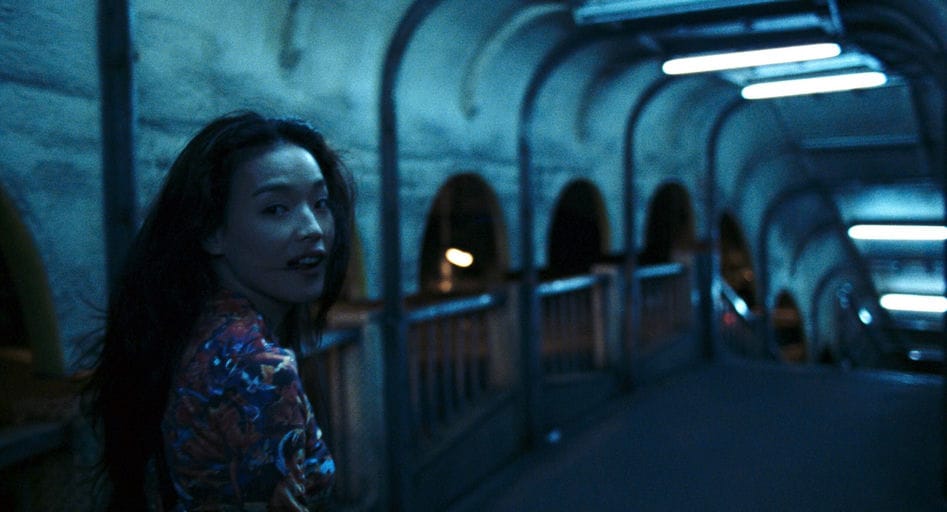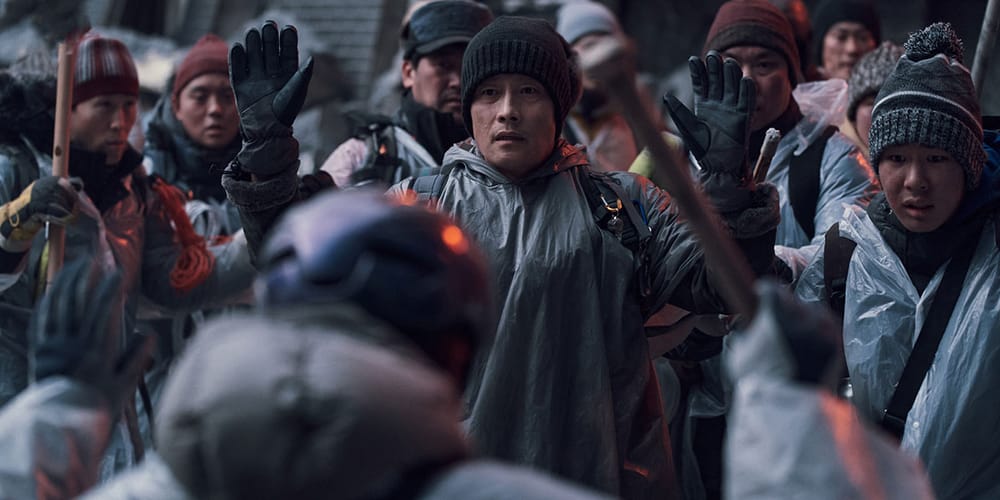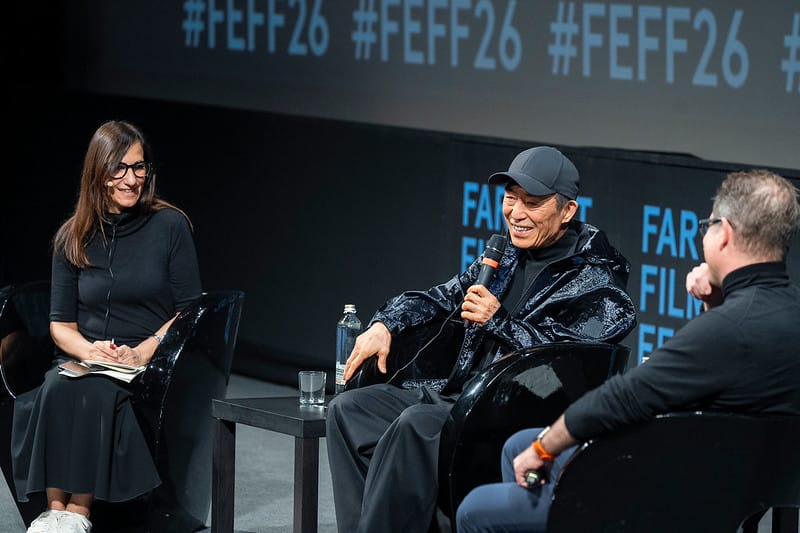By Ning Chang
When I mentioned that I was going to cover Hou Hsiao-Hsien’s "Millennium Mambo" (2001), a friend of mine was quick to call me out for, one, never seeing it, and two, going to see it at a 9:15 p.m. screening at the Metrograph Theatre after a long and tiring day.
“This film is just vibes,” he said. “It’s two hours of nothing really happening to a shoegaze-y soundtrack.” He added, “It’s amazing, though."
Having now seen "Millennium Mambo," he’s not wrong. The film is heavily vibe-forward. Hou hews closely to his contemporaries in the late nineties and early aughts who also tried to capture youthful disaffection at the turn of the millennium—Wong Kar Wai comes to mind for his chronicles of the Hong Kong scene—but the result is often criticized as being too pop, too zeitgeisty. Even the transportive visuals by longtime Hou collaborator, cinematographer Mark Lee Ping-bing, can feel overly voluptuous.
With the benefit of hindsight, however, "Millennium Mambo" shines as a film flexing raw aesthetic power, driven forward by the constant techno heartbeat of the soundtrack, and only becoming more and more breathtaking as it gets older. Given its loose and somewhat cyclical plot, it also benefits from a greater appetite for vibe-forward films in the current moment. It banks hard on the nostalgia angle, one that may have been underappreciated at the turn of the millennium, but feels all the more melancholic and intense now, 22 years later.
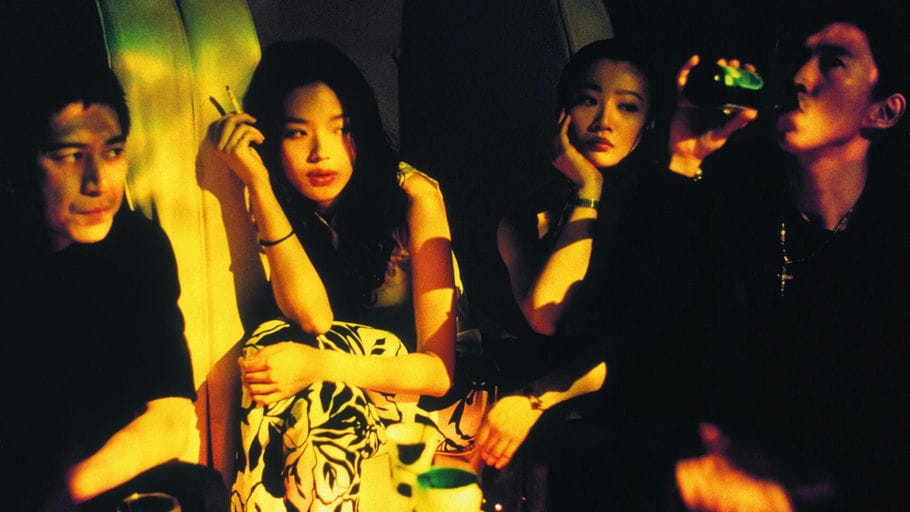
A caveat: I am as old as "Millennium Mambo." I was born in 2001, the same year that Hou so delicately memorializes in intimate close-ups of sweaty clubs awash in paradisiacal color or in tense arguments over buying phone cards. If anything, my inability to remember any of 2001 added to my viewing pleasure. Ironically, the sense of wonderment that Hou evokes of a time long ago caters easily to people in my generation who came of age outside the shadow of Y2K.
It’s no secret that Gen Z is obsessively nostalgic for the era of its birth. From whale tails, baby tees, and low-rise jeans coming back into fashion to a wholesale rediscovery of digital point-and-shoot cameras, the 2000s are back in style. Cultural output has also followed in these footsteps; think about how we have a 2024 reboot of "Mean Girls," a film that is only 20 years old.
The feeling of nostalgia is powerful, and it undeniably sells well. Likewise, the look, feel, and story of "Millennium Mambo" seem almost prescient in their ability to appeal to this population already primed for the romanticized past. Watching Vicky (an otherworldly Shu Qi) stumble through a seemingly dead-end life, oscillating between numbness and hysteria in an abusive relationship with a mediocre DJ, I recall the spate of sly, self-destructive female media we have today: "Fleabag," Sally Rooney novels, et cetera. The first steps of this millennium’s obsession with dissociative feminism were trod by Vicky and her big doe eyes, hair streaming behind her in coyly voyeuristic slo-mo, reminding us that she would leave Hao Hao (Tuan Chun-hao) once her money ran out.
There’s something addictive about watching gorgeous women be beautifully sad, and Vicky is no exception, but Hou’s slant on it speaks to an external malaise of the era, a romantic aimlessness inherent in the time she’s trapped in, and one that legions of young people raised on Lana Del Rey feel ready to embrace. Even the cigarette porn in this movie—the insistent orange pinpricks and dreamlike smoke—reeks of every East Village stoop haunted by NYU Tisch students who choose to be nihilist smokers because at least one of the two is sexy.
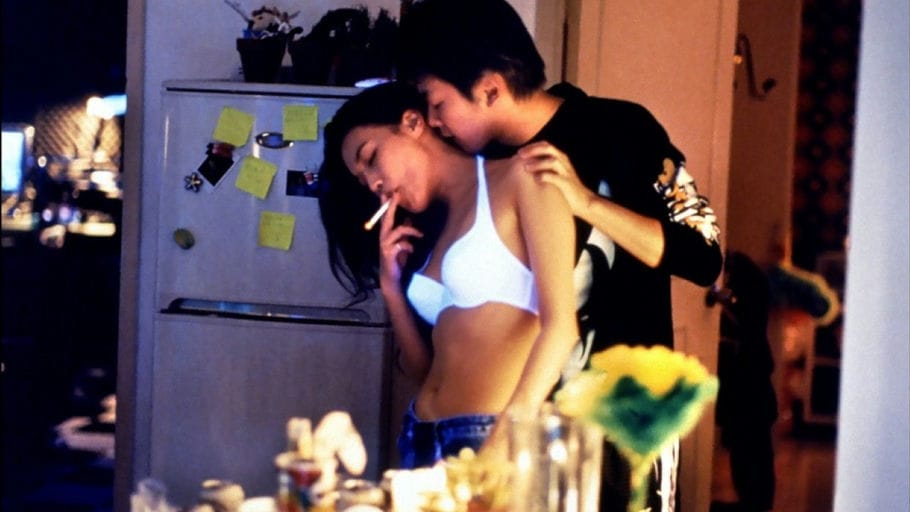
The lush eye candy of it all is certainly more than appealing to the Tumblr-obsessives among us, but the sentiment that shines the strongest in the film is a universal feeling of our youth running away from us faster than we expect. My generation’s turn towards nostalgia can be explained by an overarching sense that we have always been headed at breakneck speed towards the future. Vicky chooses to run headlong into this uncertainty; we feel like we’re along for the ride, whether we like it or not. At the pace at which the world and its defining cultural touchstones seem to change, you can’t help but feel like you’re always trying to hold on to an experience that’s insubstantial and one-of-a-kind.
Hou frames Millennium Mambo like a foggy memory with deliberately mysterious camerawork. He has objects and people drift through before the story sharpens in recognition. It insists on drawing out the temporal world through stillness, making the action of the film feel fleeting and transient. His direction reminds me of the studied casualness in which people post snippets of their lives on social media, making keepsakes out of even the most banal objects: doorways, whiskey bottles, out-of-frame staircases—all the liminal spaces we traverse on the way to the next overstimulation and, eventually, our thirties. This fleeting sense of time and the ennui it evokes echo a similar malaise that weighs on people today.
I know it sounds silly to be addressing this at 22, sounding like I'm waxing lyrical from a rocking chair on an old Southern porch, but it’s true. "Millennium Mambo’s" central achievement is Hou’s ability to press this melancholia into your soul via the optic nerve. Snow melts; movie posters peel and fade; the interminable 4/4 beat marches on; you just have to party with it as long as you’re able to, rushing into an infinite neon future. Remembering it while you have it is almost impossible. Youth only takes its full shape with hindsight—a disembodied future voice skimming over fragments of a wild and innocent past, the edges softened by time.
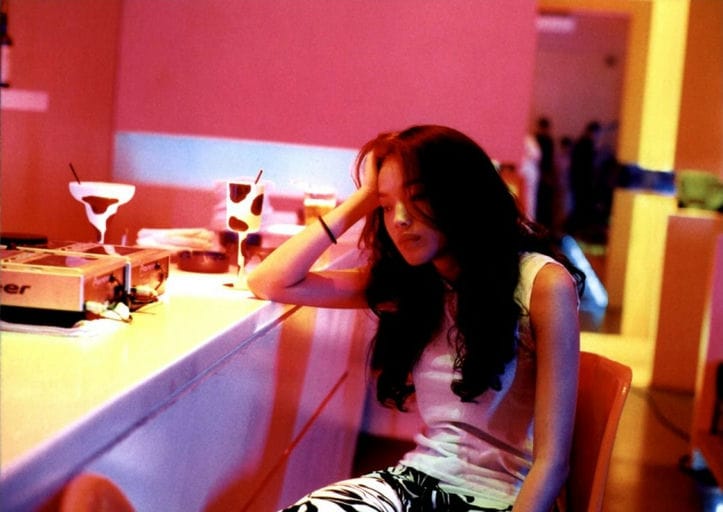
After the credits rolled and people were released onto Ludlow Street to immediately bum cigarettes off of their fellow theatergoers, I brought up to my friend that we had known each other for about a year now. Isn’t it so strange how things can seem so different in just a blink of an eye? Thinking about it some more, isn’t it a gift to know the people that we meet in our youth? Will these be the hazy, out-of-focus memories we return to in 2033?
I’m sure that when I rewatch "Millennium Mambo" in a few years, I might feel differently about it. But walking home on an unseasonably warm November night in my twenties, on quiet streets basking in a stream of red taillights over the Manhattan Bridge, it felt poignant and perfect.
Millennium Mambo was shown at Metrograph as part of their 25Y2K series and is also streaming on Metrograph's online platform.


